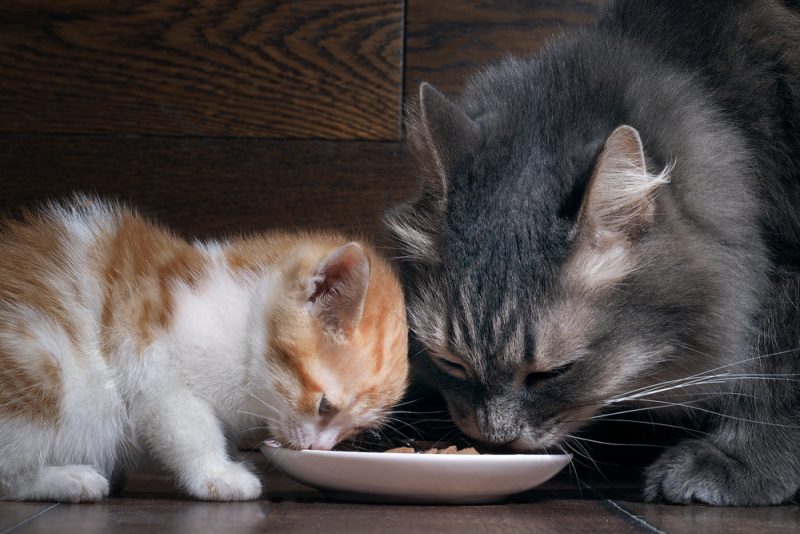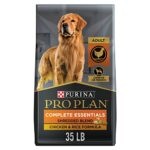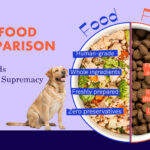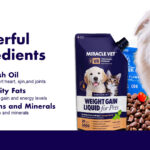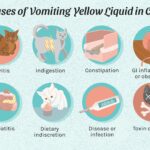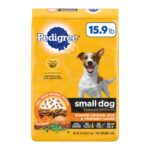Adult cats can eat kitten food, but it is not ideal for them. Kitten food has higher calories and nutrients for growth.
Kitten food is formulated specifically for the nutritional needs of growing kittens. It contains higher levels of protein, fat, and calories to support rapid growth and development. Adult cats, on the other hand, have different dietary requirements. They need a balanced diet that maintains their health without excess calories.
Feeding adult cats kitten food regularly can lead to obesity and other health issues. It is crucial to provide age-appropriate food to ensure your cat’s well-being. Always consult your veterinarian before making any significant changes to your cat’s diet. Proper nutrition is essential for a long and healthy life for your feline friend.
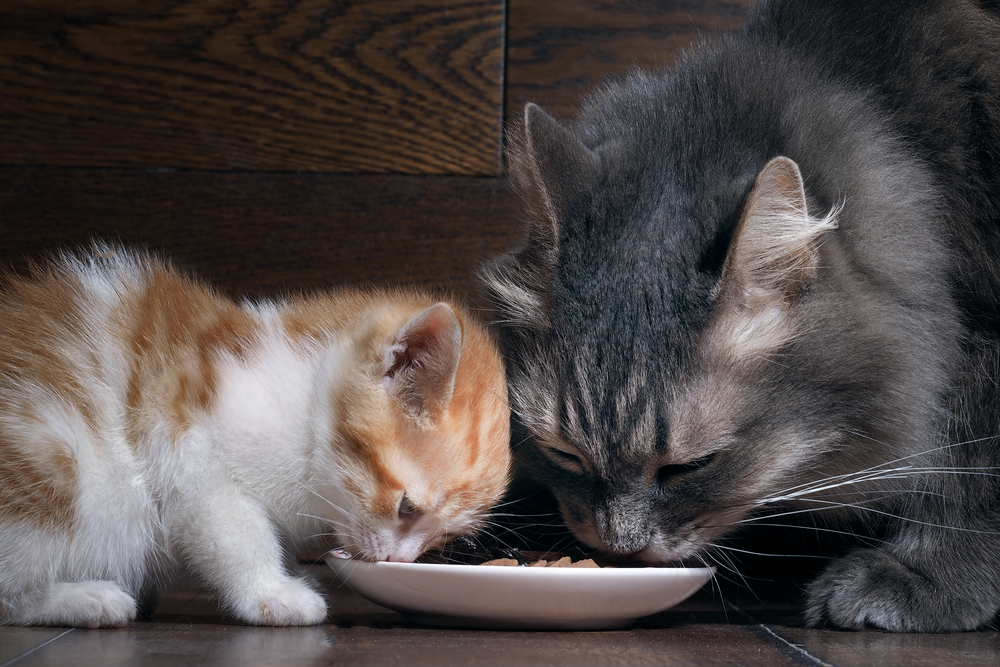
Credit: www.catster.com
Introduction To Feline Nutrition
Understanding feline nutrition is essential for a cat’s health. Proper diet ensures a long, happy life. Both kittens and adult cats need specific nutrients. These nutrients support growth, energy, and overall well-being.
Cats’ Dietary Needs
Cats are obligate carnivores. They require meat-based proteins. These proteins provide essential amino acids like taurine and arginine.
Fats are also crucial. They supply energy and support cell functions. Omega-3 and Omega-6 fatty acids are vital.
Vitamins and minerals are necessary. They aid in various body functions. Calcium and phosphorus support bone health. Vitamins A, D, E, and K are essential.
Kitten Vs. Adult Cat Food
Kitten food and adult cat food have different formulations. Kitten food is rich in calories and nutrients. It supports rapid growth and development.
| Nutrient | Kitten Food | Adult Cat Food |
|---|---|---|
| Protein | Higher | Moderate |
| Fats | Higher | Lower |
| Calories | More | Less |
Feeding adult cats kitten food can lead to obesity. Adult cats need fewer calories. Excessive nutrients can cause health issues.
Always choose food based on your cat’s age. This ensures they get the right nutrients.
Key Ingredients In Kitten Food
Understanding the key ingredients in kitten food helps in deciding if adult cats can eat it. Kitten food is designed to support rapid growth and development. It is formulated to meet the specific needs of young cats. But what exactly makes kitten food different?
High-calorie Content
Kitten food contains a higher calorie content than adult cat food. Growing kittens need more energy. They are more active and burn more calories. This high-calorie food helps support their rapid growth and playful lifestyle.
Adult cats usually do not need such high-calorie intake. Overeating this can lead to weight gain in adult cats. Always monitor their weight if they eat kitten food.
Nutrient-rich Formulations
Kitten food has nutrient-rich formulations that support development. These include:
- Higher Protein Levels: Supports muscle growth and repair.
- Essential Fatty Acids: Promotes brain development and healthy skin.
- Calcium and Phosphorus: Strengthens bones and teeth.
These nutrients are crucial for kittens but not always necessary for adult cats. Adult cats can get excess nutrients if they consume kitten food regularly. This might lead to health issues over time.
| Ingredient | Kitten Food | Adult Cat Food |
|---|---|---|
| Calories | Higher | Moderate |
| Protein | Higher | Moderate |
| Fatty Acids | Higher | Moderate |
| Calcium | Higher | Moderate |
Adult Cat Dietary Requirements
Understanding the dietary needs of adult cats is crucial for their health. Adult cats have different nutritional needs compared to kittens. This guide will help you understand what makes an optimal diet for mature cats.
Energy And Metabolism
Adult cats have slower metabolism rates compared to kittens. They need less energy but still require nutrient-dense food. Overfeeding can lead to obesity, which is a common problem. It’s essential to find a balance in their diet.
| Age Group | Energy Requirement (kcal/day) |
|---|---|
| Kitten | 250-280 |
| Adult Cat | 200-220 |
Essential Nutrients For Mature Cats
Protein is vital for maintaining muscle mass in adult cats. They need high-quality animal proteins. Taurine is another essential amino acid for cats. A lack of taurine can lead to serious health issues.
- Vitamins: A, B, D, and E are crucial for health.
- Minerals: Calcium and phosphorus are needed for bone health.
- Omega-3 and Omega-6: These fatty acids support skin and coat health.
Water is also vital. Ensure your cat has access to fresh water at all times. Dehydration can lead to severe health problems.
The Appeal Of Kitten Food To Adult Cats
Many adult cats find kitten food appealing. This might surprise many cat owners. Adult cats often show interest in kitten food. There are specific reasons for this preference.
Taste And Texture
Kitten food has a unique taste. It is often richer in flavor. Manufacturers design it to attract young cats. Adult cats sometimes prefer this richer taste.
The texture of kitten food is also different. It is usually softer. This makes it easier for kittens to chew. Adult cats might find this softness appealing too.
| Kitten Food | Adult Cat Food |
|---|---|
| Richer Flavor | Milder Flavor |
| Softer Texture | Firmer Texture |
Behavioral Factors
Cats are curious animals. They often want to try new things. Kitten food can be new and exciting for them.
Sometimes, adult cats see kittens eating. They get curious and want to try the food too. This can make kitten food more appealing to them.
- Curiosity
- Seeing other cats eat
- New and exciting food
Another factor is competition. Cats might want to eat what others are eating. This can include kitten food.
Short-term Effects Of Kitten Food On Adults
Kitten food can temporarily boost an adult cat’s energy due to its higher calorie content. Digestive issues may arise if consumed long-term.
Feeding adult cats kitten food might seem harmless. Kitten food is rich in nutrients. But how does it impact adult cats in the short term?
Digestive Response
Adult cats have different digestive needs. Kitten food is richer in fat and protein. This can lead to digestive issues for adults.
| Kitten Food Nutrient | Effect on Adult Cats |
|---|---|
| High Protein | Upset stomach |
| Rich Fat Content | Diarrhea |
| Extra Calories | Weight gain |
Cats may experience vomiting and diarrhea. These symptoms are due to the richer content in kitten food.
Energy Levels
Kitten food is meant for growing kittens. It provides more energy.
- Adult cats may become hyperactive.
- Excess energy can lead to restlessness.
- Some cats may gain weight quickly.
Weight gain can lead to other health issues. Monitor your cat’s behavior and energy levels closely.
Kitten food’s rich nutrients can cause a spike in energy. This might seem good, but it’s not ideal. Adult cats need a balanced diet.
Balanced diet is crucial for adult cats. Kitten food is not a long-term solution for them.
“`
Long-term Nutritional Impacts
Feeding kitten food to adult cats might seem harmless. But it can have long-term nutritional impacts. Understanding these effects can help ensure your cat’s health.
Weight Gain Risks
Kitten food is high in calories. Adult cats eating it might gain weight. Excess weight can lead to health issues. Obesity in cats can cause diabetes, heart disease, and joint problems.
| Kitten Food | Adult Cat Food |
|---|---|
| High in calories | Moderate calories |
| Rich in fats | Balanced fats |
| More protein | Balanced protein |
Possible Nutrient Imbalances
Kitten food has more protein and fats. Adult cats don’t need these in large amounts. This can cause nutrient imbalances. Over time, it might affect their health.
- High protein can stress kidneys.
- Excess fat can cause obesity.
- Vitamin imbalance can lead to deficiencies or excesses.
Feeding adult cats the right food is crucial. It ensures they get balanced nutrients. This helps them live healthier lives.
Special Cases: When Adult Cats Can Eat Kitten Food
Adult cats usually need adult cat food. But, there are special cases. Sometimes, adult cats may need kitten food. These cases include pregnancy, nursing, recovery, and illness.
Pregnancy And Nursing
Pregnant and nursing cats need more nutrients. They need more protein, fat, and energy. Kitten food has these extra nutrients. So, it can help pregnant and nursing cats stay healthy.
Here is a table showing the nutrient needs:
| Life Stage | Protein | Fat | Energy |
|---|---|---|---|
| Adult Cats | 26% | 9% | 70 kcal/kg |
| Pregnant/Nursing Cats | 30% | 20% | 90 kcal/kg |
Recovery And Illness
Sick or recovering cats may need more nutrients. Kitten food is nutrient-rich. It can help sick or recovering cats get better faster. Always check with a vet first.
Here are some reasons why kitten food helps:
- High in protein
- Rich in fat
- Extra vitamins and minerals
Kitten Food As A Supplement
Kitten Food as a Supplement can be a good idea for adult cats. Kitten food is rich in nutrients and calories. It helps in certain situations like illness or weight gain. Adult cats may benefit from the extra nutrients in kitten food.
Combining Foods
Mixing kitten food with adult cat food can be beneficial. This helps your cat get a balanced diet. You can mix them in a ratio of 1:3. One part kitten food and three parts adult food. This ensures your cat gets extra nutrients without overeating.
Portion Control
Portion control is key when feeding kitten food to adult cats. Adult cats do not need as many calories as kittens. Overfeeding can lead to obesity and other health issues. Measure the food portions carefully.
Tips for Portion Control:
- Use a measuring cup
- Follow feeding guidelines on the food package
- Monitor your cat’s weight and adjust portions as needed
Transitioning From Kitten To Adult Cat Food
Transitioning from kitten food to adult cat food is a crucial step. Kittens need more protein and fat for growth. Adult cats need balanced nutrients to maintain health. Proper timing and careful introduction are essential.
Timing The Switch
Timing the switch from kitten to adult cat food is vital. Most cats transition at around one year old. Some larger breeds may need kitten food longer. Consult your vet for the best timing.
Monitor your cat’s growth and health. Ensure they are ready for the change. A gradual switch helps prevent digestive issues. Here’s a simple timeline:
| Cat Age | Food Type |
|---|---|
| 0-12 Months | Kitten Food |
| 12-15 Months | Mix of Kitten and Adult Food |
| 15+ Months | Adult Cat Food |
Introducing New Diets
Introduce new diets slowly. Start by mixing small amounts of adult food with kitten food. Gradually increase the adult food portion. Over 7-10 days, transition to only adult food.
This gradual change helps the cat’s digestive system. It reduces the risk of stomach upset. Here’s a simple step-by-step guide:
- Day 1-3: 75% kitten food, 25% adult food
- Day 4-6: 50% kitten food, 50% adult food
- Day 7-9: 25% kitten food, 75% adult food
- Day 10: 100% adult food
Observe your cat for any adverse reactions. Look for signs like vomiting or diarrhea. If symptoms occur, slow down the transition. Ensure fresh water is always available. Stay patient and consistent for the best results.
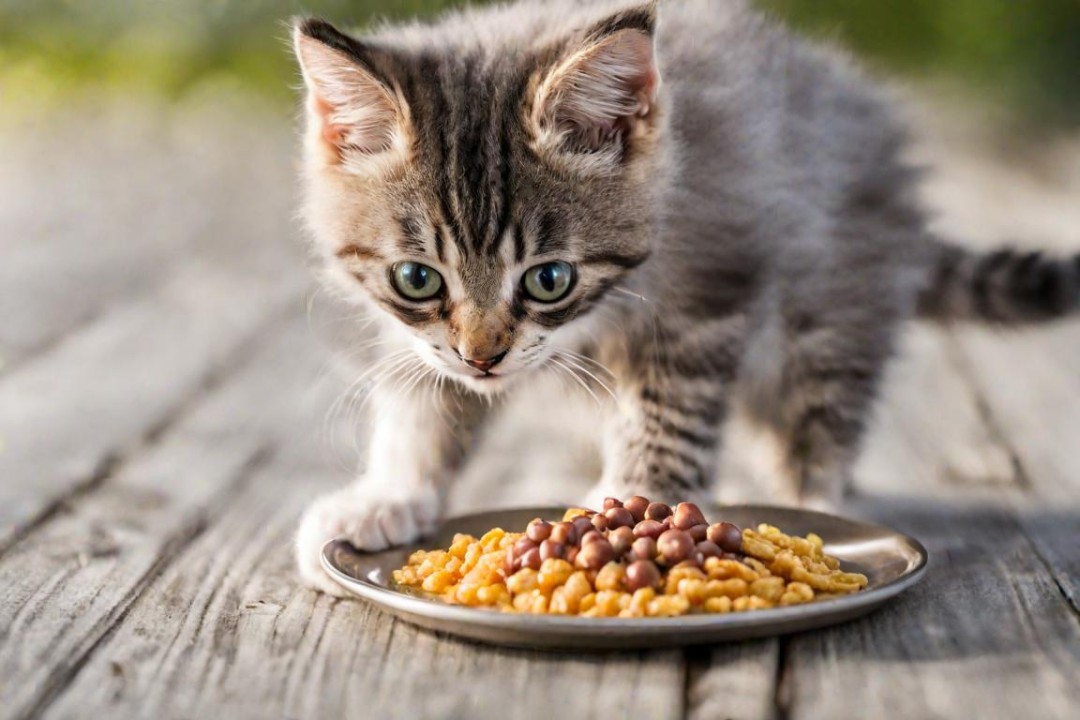
Credit: www.iamarchitectes.com
Obesity And Overfeeding Concerns
Feeding adult cats kitten food may lead to obesity and overfeeding. Kitten food has more calories and nutrients than adult cat food. It is designed for growing kittens with higher energy needs. Adult cats do not need as many calories, and overfeeding can cause weight gain. Let’s explore this topic further.
Caloric Intake
Adult cats require fewer calories than kittens. Kitten food is high in calories to support growth. An adult cat eating kitten food can consume too many calories. This can lead to weight gain and obesity. Weight gain in cats can cause health problems like diabetes and arthritis.
| Cat Type | Daily Caloric Needs |
|---|---|
| Kitten | 200-250 calories |
| Adult Cat | 150-200 calories |
As shown in the table, kittens need more calories than adult cats. Feeding kitten food to adult cats can exceed their caloric needs.
Exercise And Activity
Exercise helps manage a cat’s weight. Adult cats are usually less active than kittens. Kittens play more and burn more calories. Adult cats may not exercise as much, leading to weight gain if they eat high-calorie food. Ensure your cat gets enough exercise to prevent obesity.
- Play with your cat daily.
- Use toys to encourage movement.
- Create an enriching environment with climbing spaces.
Keeping your cat active helps maintain a healthy weight. Balance their diet and exercise for optimal health.
Expert Opinions On Feline Diets
Many cat owners wonder if adult cats can eat kitten food. Understanding expert opinions on feline diets helps make informed choices. Experts agree that diet plays a crucial role in a cat’s health. Let’s explore veterinarian recommendations and nutritional studies on this topic.
Veterinarian Recommendations
Veterinarians often advise against feeding kitten food to adult cats. Kitten food contains higher calories and nutrients. This can lead to obesity in adult cats. Also, the needs of adult cats differ from kittens.
Adult cats need balanced protein and fat levels. Kitten food may disrupt this balance. Consult your vet for tailored dietary advice.
Nutritional Studies
Nutritional studies support the need for age-appropriate cat food. A study by the National Research Council found different nutrient needs for different life stages. Kitten food is rich in calories and fats. Adult cats may not require such high levels.
Another study by the American Association of Feed Control Officials shows specific nutrient profiles for kittens and adults. Feeding inappropriate food can lead to health issues. Always read labels and choose the right food for your cat’s age.
| Nutrient | Kitten Food | Adult Cat Food |
|---|---|---|
| Calories | High | Moderate |
| Protein | Higher | Balanced |
| Fat | Higher | Balanced |
Home-made Diets Vs. Commercial Foods
Choosing between home-made diets and commercial foods for your cat can be challenging. Each option offers unique benefits and potential drawbacks. Understanding these differences can help you make an informed decision for your feline friend.
Preparing Balanced Meals
Preparing balanced meals at home requires careful planning. You must ensure your cat gets all essential nutrients. Cats need proteins, vitamins, and minerals for optimal health.
A table can help outline the essential nutrients:
| Nutrient | Source |
|---|---|
| Protein | Chicken, Fish |
| Vitamins | Vegetables, Supplements |
| Minerals | Bones, Supplements |
Use quality ingredients and avoid harmful foods. Consulting a vet can ensure your cat’s diet is balanced.
Pros And Cons
Home-made diets offer control over ingredients and quality. They can be tailored to your cat’s needs. But, they require time and knowledge to prepare properly.
- Pros:
- Control over ingredients
- Customizable for specific needs
- Cons:
- Time-consuming
- Requires nutritional knowledge
Commercial foods are convenient and nutritionally balanced. They undergo rigorous testing for safety. Yet, they may contain additives or fillers.
- Pros:
- Convenient
- Balanced nutrition
- Cons:
- May contain additives
- Less control over ingredients
Reading And Understanding Food Labels
It’s important to read and understand food labels before feeding your cat. Knowing what goes into your cat’s food helps you make better choices. Let’s dive into key aspects of reading food labels.
Ingredients To Look For
When reading food labels, focus on the first few ingredients. They make up the bulk of the food.
- Animal Protein: Look for chicken, beef, or fish as the first ingredient.
- Fats: Healthy fats like chicken fat or fish oil are good.
- Carbohydrates: Rice, oats, or potatoes are better than fillers.
Avoid foods with too many fillers like corn or soy. These offer little nutritional value.
Marketing Vs. Reality
Food labels often use marketing terms that can be misleading. Terms like “natural” or “premium” don’t always mean high quality.
Check the actual ingredients to see if the food lives up to its claims. Look for foods that meet AAFCO standards. This ensures the food is nutritionally balanced.
| Marketing Term | What to Look For |
|---|---|
| Natural | No artificial colors or preservatives |
| Premium | High-quality protein sources listed first |
| Grain-Free | Check for other carbs like potatoes |
By understanding food labels, you make better choices for your cat’s diet. Choose foods with quality ingredients and avoid falling for marketing gimmicks.

Credit: www.mercurynews.com
Common Myths About Cat Food
There are many myths about what cats should eat. These myths confuse many cat owners. Let’s debunk some common myths about cat food.
Human Food Equivalents
Many people think cats can eat human food. This is a common myth. Human food can harm cats. Chocolate, onions, and garlic are toxic to cats.
Table scraps can also cause obesity in cats. Cats need food made just for them. It has the right balance of nutrients.
| Human Food | Effect on Cats |
|---|---|
| Chocolate | Can cause poisoning |
| Onions | Can cause anemia |
| Garlic | Can damage red blood cells |
Grain-free And Raw Diets
Some think grain-free diets are better for cats. This is a myth. Most cats can digest grains just fine.
Grain-free diets can lack important nutrients. These diets can cause health issues over time.
Raw diets are another popular trend. These diets can be risky. Raw meat can have bacteria and parasites. These can make your cat very sick.
- Grains provide important fiber.
- Grains are a good source of energy.
- Raw diets can lack balance.
- Raw meat can cause infections.
It’s best to feed your cat balanced commercial cat food. This ensures they get all the nutrients they need.
Conclusion: Best Practices For Feeding Adult Cats
Feeding adult cats requires careful consideration of their unique dietary needs. Ensuring they receive the proper nutrition is vital for their health and longevity. While kitten food is nutrient-dense, it may not always be suitable for adult cats. Let’s explore the best practices for feeding adult cats.
Maintaining Dietary Health
Adult cats need a balanced diet that meets their nutritional requirements. Kitten food is high in calories, protein, and fat. These are essential for growing kittens but can lead to weight gain in adult cats. Adult cat food is formulated to maintain a healthy weight.
Consider the following dietary components for adult cats:
- Protein: Vital for muscle maintenance.
- Fat: Provides energy but should be controlled.
- Fiber: Aids in digestion.
- Vitamins and Minerals: Supports overall health.
Avoid feeding adult cats kitten food for extended periods. It can cause health issues over time.
Regular Check-ups And Adjustments
Regular vet check-ups are crucial for monitoring your cat’s health. Vets can recommend diet adjustments based on your cat’s condition.
Follow these best practices:
- Schedule annual vet visits.
- Monitor weight and overall health.
- Adjust diet based on vet recommendations.
Keeping track of your cat’s health ensures they remain happy and healthy. A balanced diet and regular check-ups are key.
Frequently Asked Questions
Is Kitten Food Ok For Older Cats?
Kitten food is not ideal for older cats. It has higher calories and nutrients, which can cause weight gain and health issues. Older cats need a balanced diet designed for their age. Always consult your vet for dietary advice.
Is There Really A Difference Between Kitten And Adult Cat Food?
Yes, kitten food has more protein and fat, essential for growth. Adult cat food meets maintenance needs.
Can You Give Kittens Adult Cat Food?
Kittens need specialized kitten food for proper growth. Adult cat food lacks essential nutrients for their development. Always feed kittens appropriately.
At What Age Should I Switch From Kitten Food To Adult Cat Food?
Switch from kitten food to adult cat food at around 12 months. Consult your vet for specific recommendations.
Conclusion
Feeding adult cats kitten food is generally not recommended. Kitten food has higher calories and nutrients. Adult cats need a balanced diet suited for their age. Always consult your vet before making dietary changes. Ensuring proper nutrition helps maintain your cat’s health and longevity.
Choose the right food for a happy, healthy cat.

